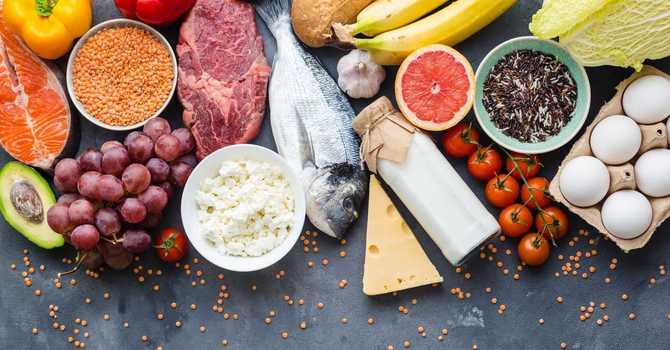In the bustling world of nutrition advice, finding clear guidance on what to eat for both physical and mental wellness can feel like navigating a maze. Chapter 10 of "The Better Brain" by Bonnie Kaplan and Julia Rucklidge sheds light on this conundrum, offering insight into the complexities of dietary choices and their impact on our brain health.
The Tangled Web of Dietary Guidelines
Governments worldwide establish dietary guidelines intended to shape public health policies and influence the food provided in publicly funded institutions like schools and hospitals. The United States revises its dietary guidelines every five years, reflecting the latest scientific evidence. In Canada, the last revision occurred in 2019. These guidelines suggest a balanced diet akin to the Mediterranean diet, emphasizing a variety of vegetables, fruits, whole grains, and lean proteins. However, the practical application, understanding, and adherence to these guidelines remain a challenge for many consumers.
What to Avoid?
The key takeaway from the book is that our mental health is profoundly affected not just by what we eat but by what we choose to avoid. Highly processed foods, often loaded with unhealthy fats, excessive sugars, and sodium, can sabotage our mental and physical health. The substitution of fat with sugar in many "fat-free" products has contributed to widespread health misconceptions and unintended weight gain among consumers.
Sugar – A Bittersweet Affair
One of the most eye-opening discussions in the book revolves around sugar consumption. The staggering increase in sugar intake over the past few decades is alarming. While our brains require glucose to function, the type and amount of sugar consumed matter immensely. The authors argue for moderation and advocate for obtaining sugar from natural sources like fruits, which also provide fiber and essential nutrients.
The Controversy Over Meat and Fat
The dialogue on dietary fats and meat consumption is another critical aspect of this chapter. Kaplan and Rucklidge highlight the shift from natural, full-fat foods to low-fat alternatives, which often fail to satisfy nutritionally and culinarily. They encourage a balanced view, recognizing the nutritional benefits of meats, especially from animals that are grass-fed, while also acknowledging the environmental impacts of conventional meat production.
Processed Foods and Mental Health
The chapter also explores the adverse effects of ultra-processed foods on our brain functioning. These foods typically lack essential nutrients while being rich in additives and preservatives that can be detrimental to our health. This discussion extends to the environmental and health implications of chemicals found in our food supply, emphasizing the need for more rigorous safety testing.
Practical Advice for Better Eating Habits
Practically, "The Better Brain" encourages readers to adopt healthier eating habits by suggesting simple swaps and mindful eating practices. For example, replacing soda with water or unsweetened seltzer and choosing whole foods over packaged snacks can make a significant difference in one's diet quality and overall health.
Empowering Change Through Education
The chapter highlights the importance of understanding and implementing healthier dietary choices not just for individual well-being but also for future generations. By demystifying dietary guidelines and advocating for a return to whole, minimally processed foods, Kaplan and Rucklidge provide a blueprint for enhancing mental health through nutrition.
A Call to Action for Mindful Eating
Chapter 10 of "The Better Brain" not only serves up a feast of food for thought but also dishes out an energizing reminder of how our diet profoundly influences both our mental and physical health. It's a vibrant call to action, encouraging us to sift through our pantry choices with a keen eye and to opt for whole, nutrient-rich foods over the seductive simplicity of processed alternatives.
Here's a fun tip to bring this chapter into your daily life: Try adopting the "Half-Plate Habit." As suggested in the chapter, aim to fill half your plate with fruits and vegetables at every meal. It's a visual and practical way to ensure you're feasting on foods that fuel your brain and body optimally, thereby supporting improved mental health.
And to keep you motivated, remember this pivotal quote from the book: "Improving your nutrition protects you from many environmental harms as well." This powerful reminder highlights that by choosing healthier foods, you're not only boosting your own mental and physical well-being but also contributing to a more sustainable world, reducing the demand for heavily processed products that often come with a larger environmental footprint.
Action: Visit https://eckertcentre.com/pages/revive-wellness-services to learn more about our partnership with Revive Wellness (Registered Dietician services) and book your free discovery call to see how they can help your family improve mental health through food.
Madison is a Psychology Assistant; Digital Marketing Assistant at Eckert Centre. She's currently deepening her understanding of psychology at the University of British Columbia. Madison brings her passion for mental health to our community through her writing. As our blogger in residence, her contributions offer a fresh perspective and shed light on the importance of mental wellbeing. We are grateful for her eloquent words and the insights she shares on her journey towards cultivating a "Wise Self." For more insights, information, or to book an appointment, please visit www.eckertcentre.com and click the appointment button or reach out to our team at info@eckertpsychology.com.
Works Cited Kaplan, Bonnie J., and Julia J. Rucklidge. The Better Brain: Overcome Anxiety, Combat Depression, and Reduce ADHD and Stress with Nutrition. Mariner Books, 2022.




